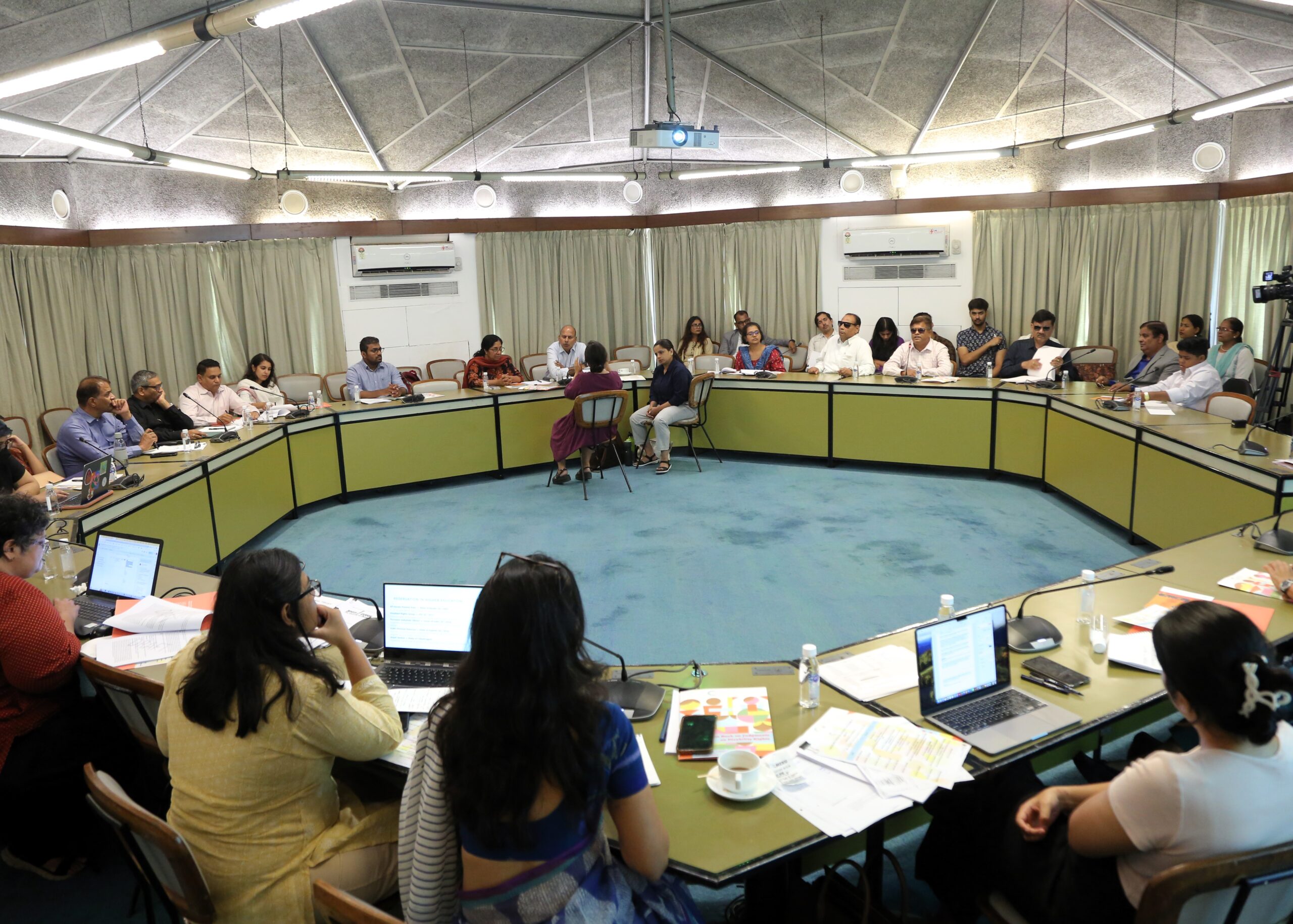The Centre for Law and Policy Research (CLPR) held a National Consultation on its Draft Resource Book on Disability Rights Judgments in India on Saturday, 13th July, 2024 in New Delhi. This Resource Book is one of four planned publications aiming to compile the most important and relevant High Court and Supreme Court judgments on the rights of persons with disabilities, transgender persons, women and marginalised castes, with the support of the German Embassy in New Delhi. The Resource Book on Disability Rights Judgments aims to present the key disability rights cases in a comprehensive and accessible manner, avoiding complex legal jargon. It is intended to benefit community groups and organizations, legal practitioners, academics and lay persons by ensuring they have access to important judgments. The National Consultation brought together leading disability rights activists, academics and lawyers to gather their insights and feedback on CLPR’s first draft. Key participants included Amita Dhanda, Rajive Raturi, Kanchan Pamnani, A.S. Narayanan, Dr. Sanjay Jain and Deputy Chief Commissioner, Praveen Prakash Ambastha.

The Consultation included dedicated sessions on key areas of disability legislation, including “reasonable accommodation”, reservations for persons with disabilities, employment, education, accessibility and the rights of women with disabilities. We began with an introductory session led by Jayna Kothari (Executive Director, CLPR and Senior Advocate), where she outlined the Resource Book’s development and objectives. Participants were also invited to provide their general comments and first impressions of the draft.

Senior Research Associate, Nithya Rajshekhar, introduced the cases on the principle of Reasonable Accommodation, including pioneering cases such as Ranjit Kumar Rajak v. State Bank of India and landmark judgments like and Mohammad Ibrahim v. Chairman and Managing Director. Dr. Amita Dhanda (Professor of Law, NALSAR), the discussant for this session, highlighted the critical role of reasonable accommodation in creating inclusive environments and bridging gaps to ensure non-discrimination. The need for continuous vigilance to protect these rights and addressing the resistance faced in providing accommodations was also discussed. The session underscored the importance of a comprehensive approach and evolving legal understanding of reasonable accommodation.
The session on the Right to Employment and Reservations was presented by Jayna Kothari, who gave an overview of key cases related to employment rights and reservations for persons with disabilities, including National Federation of the Blind v. Union Public Service Commission, Siddaraju v. State of Karnataka and Ors. and Union of India v. Sanjay Kumar Jain. Discussions highlighted the continuing issue of identifying suitable posts for persons with disabilities and the importance of integrating disability jurisprudence within broader human rights. Dr. Sanjay Jain (Professor of Law, NLSIU), the discussant for this session, stressed the connection between reasonable accommodation and employment, and noting existing gaps in reservation policies. Participants emphasized the need for the Resource Book to address inconsistencies in application of the law, and promoting inclusive policies.

In the next session, Jayna Kothari presented the cases selected under the chapter on Equal Opportunity in Education, highlighting key judgments on reservations in admission including Disabled Rights Group v. Union of India and Ors, and Purswani Ashutosh (minor) through Virumal Purswani v. Union of India and Others and those on inclusive education such as Sambhavana v. University of Delhi. Dr. Satendra Singh (Founder, Doctors with Disabilities: Agents of Change), the discussant, spoke about the developments in disability law in the context of education. Dr. Singh emphasized the importance of inclusive policies in education and the need to address historical exclusion of candidates with disabilities from medical education. The session called for comprehensive legal reforms to ensure equitable opportunities in education, underscoring the significance of addressing both temporary and permanent disabilities in educational contexts.
The Accessibility session, presented by Nithya, included a brief on judgments related to access to information, public facilities & services, and recreation, sports & culture. Key cases highlighted included Jeeja Ghosh v. Union of India and Rajiv Raturi v. Union of India. Mr. Rajiv Raturi (Strategic Advisor, Saksham Trust), the session discussant, stressed the importance of including cases that reflect the new mandates of the 2016 Act and creating safe, accessible, and inclusive public spaces. The session concluded with a call for consistent enforcement of accessibility standards across various sectors to ensure meaningful progress for persons with disabilities.

Former Research Associate and LL.M. student at NLSIU, Neha Vinod, presented the draft chapter on Women with Disabilities, which included Suchita Srivastava v. Chandigarh Administration and M. Sameeha Barvin v. The Joint Secretary Ministry of Youth and Sports Department of Sports Government of India and Others. Srinidhi Raghavan (Co-Lead Programmes, Rising Flames) led the discussion, and addressed the intersectional discrimination faced by women with disabilities. Participants underscored the importance of addressing violence, domestic issues, and ensuring legal capacity for women with disabilities. The session highlighted the need for a comprehensive approach that includes various intersecting legal domains affecting women with disabilities including criminal law and family laws.
The National Consultation provided valuable insights and recommendations for the team to take forward and ensure an engaging, thorough and accessible Resource Book on Disability Rights Judgments which would be an effective tool for disability rights learning and advocacy. The finalised Resource Book is due to be published later this year.

